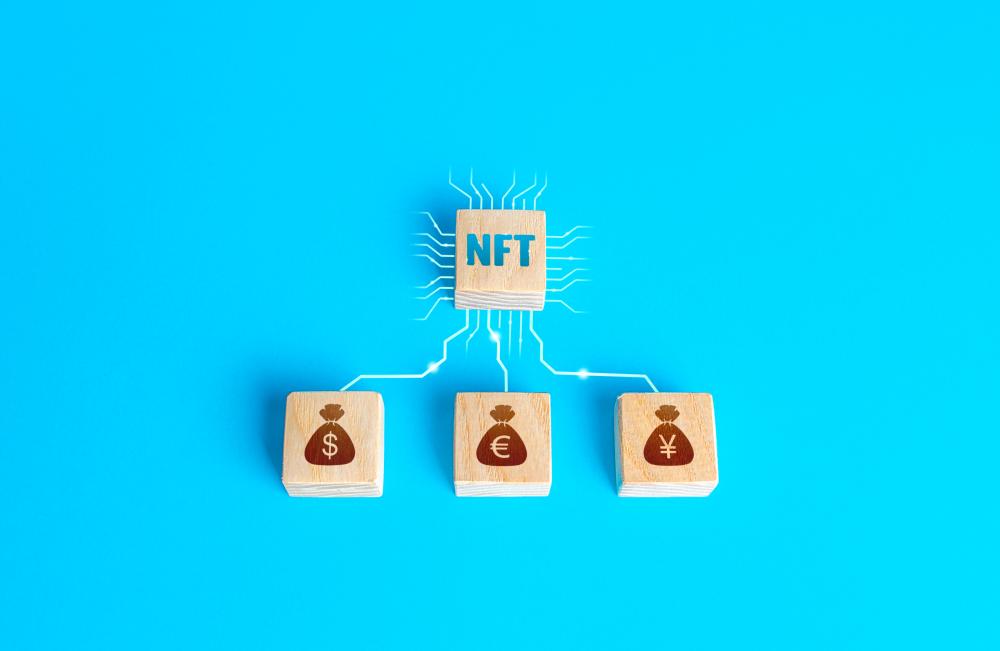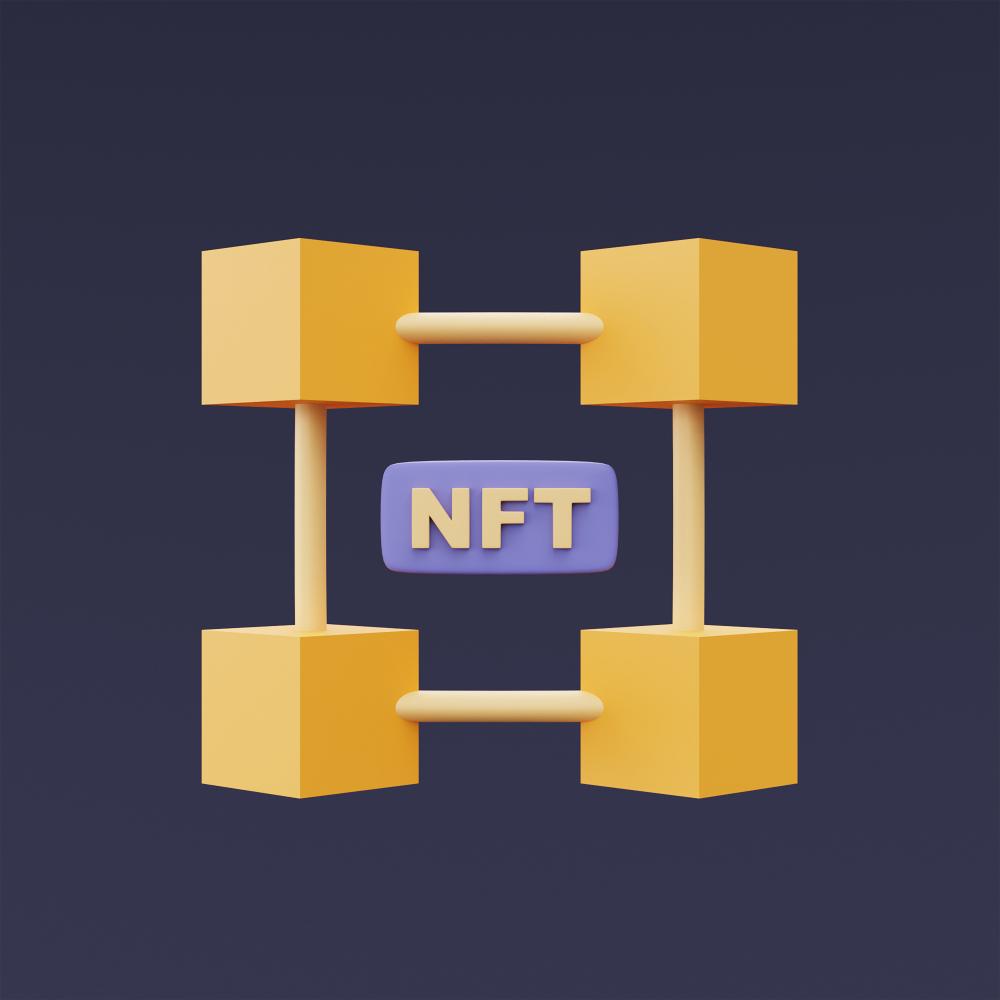
The Ins and Outs of NFT Domains
NFT domains are essentially blockchain-based domain names that offer unique functionalities beyond traditional domain registrations. Instead of residing in centralized servers, these domains exist on a decentralized infrastructure, ensuring greater security and ownership privacy. They allow individuals and businesses to showcase their digital assets or content through personalized domain names.
Unlike regular domains, NFT domains serve as digital addresses that can be used to receive cryptocurrency, host decentralized websites, and even represent one’s digital identity. This paradigm shift opens up a world of new possibilities for managing and showcasing digital assets more effectively. Owning an NFT domain means owning a piece of the blockchain, offering perpetuity and resistance to censorship.
How Does NFT Domain Registration Work?
The process of NFT Domain Registration involves acquiring a domain name that functions similarly to a digital asset on the blockchain. Upon purchase, the domain name is minted as a non-fungible token (NFT) and recorded on a blockchain like Ethereum or Polygon. This provides the owner with an immutable, publicly verifiable record of ownership.
Once registered, these domains can be used to host decentralized websites, serve as crypto wallet addresses, or even integrated into Web3 projects. The appeal of NFT Domain Registration lies in the flexibility it offers, from easy-to-remember wallet addresses to innovative integrations with blockchain applications. Many users find the experience of managing NFT domains to be an intuitive extension of their Web3 presence.
A practical benefit is the elimination of renewal fees. Unlike traditional domains requiring annual renewals, NFT domains are generally a one-time purchase, thus adding a layer of simplicity to digital asset management. This characteristic encourages a more stable and predictable ownership model.
Personal Experience Navigating NFT Domains
Working within the decentralized web industry, I’ve witnessed firsthand how NFT Domain Registration is transforming digital interactions. Many individuals initially approach NFT domains with caution due to their novelty but become quickly enamored by the advantages they offer. They appreciate the permanent ownership and appreciate the chance to be early adopters of futuristic technology.
An anecdotal example involves a colleague who registered an NFT domain for her digital art portfolio. She was able to easily link her cryptocurrency wallet to her domain, simplifying transactions for her international clients. This innovation boosted her confidence in using blockchain solutions and inspired further exploration into the decentralized web.
Such experiences underscore the potential of NFT Domain Registration to empower users, making the digital world more accessible and interactive. The trend is only gaining momentum as more people realize the expansive possibilities of holding a piece of the blockchain.
As someone embedded in this evolving space, the opportunity to experiment and explore NFT domains has been nothing short of revolutionary, offering insights and solutions that were previously unimaginable in the traditional digital landscape.
The Impact of Decentralization on NFT Domains
The decentralized nature of NFT domains provides users with a sense of autonomy and control, contributing to a broader movement towards a decentralized internet. By decentralizing domain registration, we mitigate risks associated with central points of failure that plague traditional systems.
This decentralization also democratizes accessibility, allowing smaller entities to carve out an online niche without relying on large, centralized corporations. The flexibility and autonomy afforded by blockchain technology through NFT Domain Registration contrast starkly with traditional models, offering both security and innovation.
Moreover, decentralization empowers users with greater data privacy and resilience against censorship, making NFT domains a preferred choice for those looking to maintain control over their digital identity. The potential for innovation in this space is immense, with new applications emerging regularly.
From decentralized emails to streaming services, the intertwining of NFT domains with other facets of a decentralized web ecosystem is paving the way for an unprecedented user-centric internet. As we continue to embrace these technologies, the landscape of online interactions will evolve, offering new opportunities and challenges alike.

Evolution of NFT Internet Domains
As the digital landscape continues to shift, NFT Internet Domains have emerged as a revolutionary concept integrating blockchain’s decentralization with domain ownership. By leveraging blockchain technology, these domains offer a unique way to personalize online identities while ensuring security and decentralization. This innovation is akin to owning a piece of virtual real estate, where each domain is a unique, authenticated digital asset.
The integration of NFT Internet Domains into Web3 projects is increasingly becoming a prerequisite for serious digital ventures. With the advent of technologies like #HashtagSpace, businesses can enhance their digital footprint through bespoke domains that cater to the demands of a decentralized web. By allowing users to decentralize their web presence, these domains are turning traditional notions of URL ownership on their head.
One of the standout features of NFT Internet Domains is their ability to circumvent traditional web restrictions and censorship. The domains are inherently designed to function within a decentralized framework, making them resistant to centralized control and intervention. This characteristic is crucial for users aiming to protect their digital content from arbitrary take-downs and provide uninterrupted access to their audience worldwide.
Advantages and Applications
Decentralization and Security
NFT Internet Domains harness the power of blockchain to offer unmatched security. This decentralized nature ensures that a domain can’t be easily taken down or altered without the owner’s consent, providing stability in an ever-evolving digital environment. Users seeking a secure online identity find this feature particularly beneficial, ensuring their digital assets remain protected from tampering or unauthorized control.
Seamless Integration with Social Media
Through platforms like #HashtagSpace, NFT Internet Domains integrate seamlessly with social media, enabling users to turn every mention into a clickable link. This feature is not only beneficial for individuals but also for brands looking to maximize their reach across social media platforms. By converting hashtags into direct links, users can guide their audience straight to personalized content or landing pages, enhancing engagement and connectivity.
Monetization Opportunities
Another appealing aspect of NFT Internet Domains is the array of monetization opportunities they present. Domain owners can capitalize on their unique digital assets by participating in NFT marketplaces, where domains can be auctioned or sold for profit. This offers a new revenue stream for those savvy enough to leverage the market dynamics of digital domains.
Enhanced Marketing Capabilities
Utilizing these domains, businesses can also elevate their marketing strategies by staking on keywords for enhanced visibility in decentralized search ecosystems. This opens up new pathways for brands to rank prominently in searches without relying on traditional SEO tactics, placing them a step ahead in the competitive digital marketing landscape.
Case Study and Reflections
In my experience working with #HashtagSpace, I’ve witnessed firsthand the transformative effects of NFT Internet Domains on digital marketing strategies. One client, a burgeoning tech startup, managed to increase their web traffic by 40% in just three months post-integration. This was primarily due to the enhanced visibility and searchability provided by their customized domains along with their use of decentralized platforms.
Another instance involved a freelance artist who utilized an NFT Internet Domain to showcase her portfolio. By decentralizing her content, she was able to attract international clients by enhancing the global accessibility of her work. This move not only expanded her client base but also secured her online presence against potential censorship threats in her home country.
These examples underscore the latent potential of NFT Internet Domains in reshaping how we navigate and interact with the digital world. As Web3 continues to evolve, these domains stand at the frontier, promising a future where digital identities are secure, interactive, and highly personalized.
Exploring NFT Domain Marketplace
What is an NFT Domain Marketplace?
When diving into the world of NFT domains, it’s essential to grasp what an NFT Domain Marketplace truly is. At its core, this marketplace functions as a platform where digital assets, specifically domain names represented as Non-Fungible Tokens (NFTs), are bought and sold. These NFTs transform the domain landscape by ensuring each domain name is distinct and owned entirely by the individual who purchased it. This uniqueness and ownership make NFT domains particularly attractive to digital entrepreneurs and crypto enthusiasts.
Unlike traditional domains that may involve intermediaries and renewals, NFT domains often eliminate such complexities. They exist on blockchain networks, providing a seamless and efficient transaction process. This means once you secure a domain through an NFT Domain Marketplace, it’s yours perpetually, with the blockchain acting as a transparent ledger of ownership.
Drawing on personal experience, managing NFT domains has been a revolution for businesses aiming to integrate seamlessly with decentralized technologies. From establishing an immutable online identity to safeguarding digital assets, the features these domains offer are pivotal.
Benefits and Challenges
Advantages of NFT Domain Marketplaces
The NFT Domain Marketplace offers a plethora of benefits for those willing to explore its potential. Firstly, it provides true ownership of a digital asset, ensuring that no entity can seize or alter your domain without consent. This is particularly vital for businesses emphasizing digital sovereignty and security.
Moreover, NFT domains offer enhanced opportunities for branding and marketing. Being on a blockchain means these domains can be seamlessly integrated within wider web3 environments, offering avenues for innovative digital marketing strategies. Aligning your brand with a unique NFT domain can enhance recognition and trust among tech-savvy consumers.
- True ownership without intermediaries.
- Enhanced branding and marketing opportunities.
- Seamless integration in the web3 realm.
Challenges to Consider
However, the journey into NFT Domain Marketplace is not without its challenges. As with any emerging technology, there are barriers to entry, primarily involving technical knowledge and the risk of rapidly changing technologies. Navigating these marketplaces requires a degree of tech-savviness, as blockchain operations differ from conventional domain transactions.
Furthermore, there is the challenge of regulatory uncertainties that can impact the adoption of NFT domains. Potential investors and users must stay informed about the changing legal landscape related to blockchain technologies to mitigate risks effectively.
Future Potential of NFT Domains
Innovations on the Horizon
Reflecting on the evolution of digital technologies, the NFT Domain Marketplace stands at the precipice of substantial growth. With blockchain gaining traction and decentralization becoming a buzzword, NFT domains are poised to redefine digital identity and ownership. New innovations are continuously emerging, making it a dynamic field worth watching.
From integrating with decentralized finance (DeFi) systems to fostering more robust peer-to-peer interactions, the potential applications are vast. The NFT Domain Marketplace holds the promise of not just facilitating transactions but also serving as a hub for innovative digital ecosystems.
In this rapidly evolving landscape, embracing the NFT Domain Marketplace can serve as a strategic advantage. Businesses and individuals who invest in these domains today might find themselves at the forefront of the next big wave in digital branding and ownership.
As someone who has worked closely within this domain, the potential for NFT domains to shape the future of online presence is both exciting and boundless. It’s a transformative paradigm that rewards those willing to take the leap into decentralized networks.

What is a NFT domain address?
An NFT domain address is essentially a domain name that exists as a non-fungible token on a blockchain. This means you own a unique digital asset that doesn’t rely on traditional DNS systems. Imagine owning a digital property that you can personalize to reflect your digital identity, be it for hosting decentralized websites or receiving cryptocurrency. As an organization pioneering the Web3 space, #HashtagSpace sees these addresses as the future of digital presence–where owning a domain is akin to owning a piece of the internet, offering unparalleled security and privacy.
How do I create a NFT domain name?
Creating an NFT domain name is a straightforward process that usually involves selecting a blockchain platform like Ethereum or Polygon and using a service that provides NFT domains. At #HashtagSpace, we encourage users to not just think of these domains as mere addresses, but as part of their digital identity. You simply choose a name that represents your brand or persona, ensuring it’s unique. Once you’ve made your purchase, the domain is minted as an NFT and recorded on the blockchain. This becomes a part of your digital footprint, providing you with a secure, permanent, and transferable asset. Consider what your digital identity should convey, and use that as inspiration for your NFT domain.
Is there a .crypto domain?
Yes, there are .crypto domains. These are specific types of blockchain domains that function within the decentralized web, allowing users to replace complex wallet addresses with human-readable names. They’re part of a broader trend of using blockchain technology to innovate domain naming systems. At #HashtagSpace, we see .crypto domains as a huge leap towards mainstreaming blockchain technologies, making crypto transactions as simple as typing a name. These domains can simplify how you interact with blockchain applications and enhance your presence in the crypto community.
Who owns the domain for NFT?
The owner of an NFT domain is the individual or entity that has purchased and minted it on a blockchain. This ownership is permanent unless the domain is sold or transferred to someone else. With NFT domains, you have the security of knowing your asset is protected by blockchain technology, meaning you’re not subject to the whims of centralized domain registrars. #HashtagSpace believes in empowering users with true ownership, reflecting our vision of a decentralized world where control rests with individuals. If you’re exploring this space, consider the strategic possibilities that come with owning a unique digital asset like an NFT domain.
How does the NFT Domain Marketplace operate?
The NFT Domain Marketplace functions as an exchange where unique digital domains are bought and sold as NFTs. This marketplace offers a platform for digital entrepreneurs to capitalize on their unique domain assets. At #HashtagSpace, we recognize the transformative potential of these marketplaces in democratizing domain ownership. Unlike traditional domains, NFT domains bypass intermediaries, providing a more streamlined and autonomous experience. Whether you’re looking to secure a valuable domain for branding or interested in selling, the marketplace facilitates transactions with transparency provided by blockchain technology. Think of it as a dynamic space that not only supports your digital identity but also offers profitable opportunities.
Why are NFT domains considered innovative?
NFT domains are hailed for their ability to integrate seamlessly into the decentralized web, and for guaranteeing ownership through blockchain technology. They represent a departure from centralized domain models by offering enhanced security, privacy, and control. At #HashtagSpace, we champion these innovations as they align with our mission to decentralize the internet, empower users, and protect digital identities. By resisting censorship and ensuring perpetual ownership, NFT domains offer a cutting-edge approach that caters to today’s digital demands. If you’re keen on being at the forefront of digital innovation, exploring NFT domains is a clear step forward.
What challenges do NFT domains present?
While NFT domains offer numerous benefits, they also come with challenges such as navigating a rapidly evolving tech landscape, understanding blockchain intricacies, and facing potential regulatory changes. At #HashtagSpace, we see these challenges as opportunities to educate and guide users. As with any emerging technology, there’s a learning curve, but the rewards are significant. Staying informed and adapting to new developments is crucial for leveraging the full potential of NFT domains. Additionally, engaging with communities and experts can provide valuable insights. Are there specific concerns or questions you have about NFT domains that you’d like to explore further?
Resources
- U.S. Commodity Futures Trading Commission – The official site of the U.S. Commodity Futures Trading Commission, providing regulatory oversight of the derivatives markets.
- Internet Corporation for Assigned Names and Numbers (ICANN) – ICANN is responsible for coordinating the maintenance and procedures of several databases related to the namespaces and numerical spaces of the Internet.
- Ethereum – Ethereum is a decentralized platform that enables smart contracts and decentralized applications to be built and operated without any downtime, fraud, control, or interference from a third party.
- Polygon – Polygon is a protocol and a framework for building and connecting Ethereum-compatible blockchain networks.
